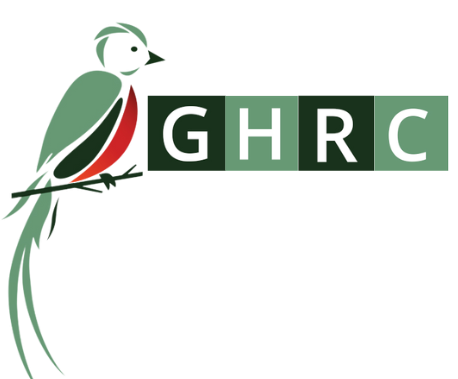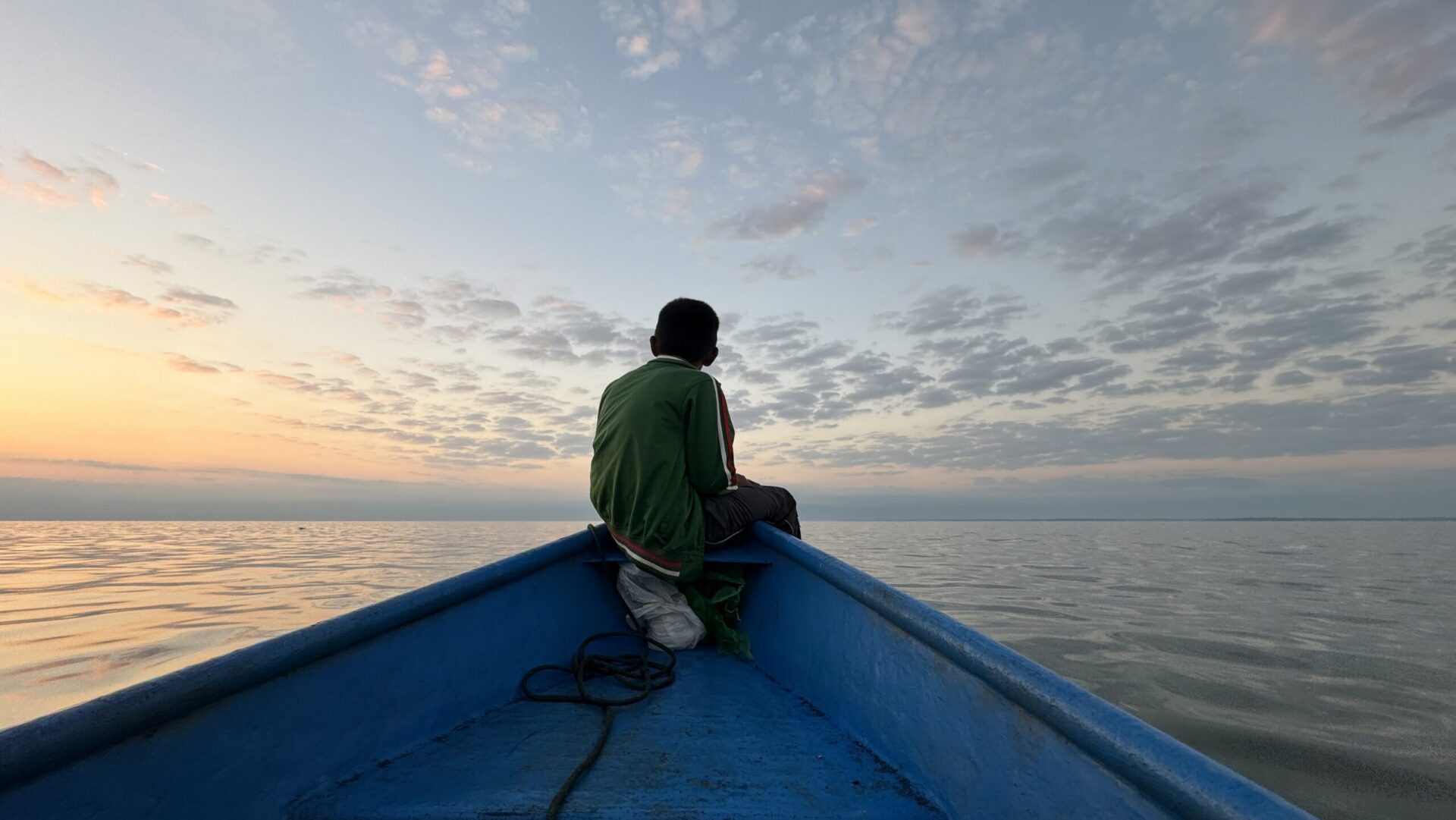Congress Approves State of Siege in El Estor After Police Repress Protesters
Thousands of police and the military used tear gas and beatings to violently repress the Indigenous Q’eqchi’ resistance to the illegal Fenix nickel mine in El Estor, Izabal on October 23. Community members had camped out to block the passage of mining equipment to the project, which was declared illegal by the Constitutional Court in a 2020 ruling that ordered the company to cease mining operations until a proper consultation and environmental impact study could be carried out. A new consultation process has begun, but according to Indigenous authorities it is being carried out “in bad faith” and excludes impacted communities. (Read more about the case on our blog.)
Video footage shows Guatemalan security forces using excessive force against protesters, including teargas, beatings, and confiscation of phones to prevent documentation of the events. Human rights organizations condemned the violence. A joint urgent action signed by GHRC on October 24 calls on Guatemalan authorities to “stop the excessive violence against Maya Q’eqchi defenders in peaceful resistance against the illegal nickel project in El Estor.” The Office of the High Commissioner for Human Rights called for “for calm and dialogue, recalling that the State has the responsibility to protect human rights, including the right to life, and facilitate the exercise of free and peaceful assembly.”
President Giammettei declared a state of siege in El Estor, which was approved by Congress on October 25 despite popular condemnation. Under the state of siege, a dusk-to-dawn curfew is being enforced by police, who have maintained a permanent presence in the community. Police have raided the homes of community leaders and journalists and have arrested at least two leaders and one journalist. Indigenous authorities presented an Act of Unconstitutionality against the decision on October 27; the state of siege will remain in effect for 30 days unless a decision on the act is made before then.
Accompaniment Organization ACOGUATE Threatened
International human rights organization ACOGUATE has been threatened for its work providing protective accompaniment to human rights defenders in Guatemala. For the last 20 years ACOGUATE has provided “international accompaniment to people or organizations of the Guatemalan social and human rights movement who are at risk for their work.” On October 18, ACOGUATE and the Campesino Unity Committee received notice that charges had been filed against them by a group called Immortal Guatemala for alleged crimes of sedition, activities against the internal security of the nation, and destruction of cultural heritage related to a march that took place on October 12. The government Ministry of Foreign Affairs threatened “appropriate diplomatic action” if foreign accompaniers were found to have been involved in illegal acts.
Team members from ACOGUATE accompanied the “March for Dignity” in Guatemala City as international observers. Unknown persons at the march took photographs of the accompaniers that later appeared on social networks and as part of a defamation campaign against international accompaniment. Immortal Guatemala shared defamatory statements and threats on its social media accounts. Contributing to the campaign, the director of the Foundation Against Terrorism in Guatemala, Ricardo Méndez Ruiz, tweeted, “Today’s violent riots were financed by ACOGUATE, a far-left NGO.”
Human rights organizations condemned the attack against ACOGUATE and the attempt to criminalize the organization. The Forum of International NGOs in Guatemala released a joint statement demanding an end to “defamation and criminalization of organizations that accompany human rights defenders.” GHRC initiated a statement in solidarity with ACOGUATE, co-signed by the Washington Office on Latin, the Due Process of Law Foundation, and RFK Human Rights, recognizing the importance of the organization’s work in Guatemala. The statement calls on Guatemalan authorities to “respect fundamental rights, including the right to freedom of expression, association, and peaceful demonstration,” and calls on the international community to “ensure that it is not financing state institutions or private initiatives that have links to groups that criminalize, threaten, and violate the human rights of indigenous communities, organizations, and human rights defenders.”
IACHR Holds Hearing on Threats to Judicial Independence
On October 28, the Inter-American Commission on Human Rights (IACHR) held a hearing on judicial employees and judicial independence in Guatemala. The hearing, which was requested by various human rights organizations, including GHRC, featured testimonies from Judge Erika Aifán, former head of the Special Prosecutor’s Office Against Impunity (FECI) Juan Francisco Sandoval, Human Right Ombudsman Jordan Rodas, and others.
During the hearing, the participants raised topics of concern, including criminalization and harassment of judges, threats to independent prosecutors, and the violation of access to justice and judicial independence. On behalf of independent judges in Guatemala, Judge Erika Aifán described acts of retaliation against Pablo Xitumul, Miguel Ángel Gálvez, and Jamin Barrios for their work against corruption and impunity. Moreover, she voiced concerns about the threat posed daily by systematic attacks by groups that disseminate hate and threats on their social media accounts, labeling the judges as guerrillas and connecting them to images of torture. Finally, she pointed out the inefficiency of the state authorities and their failure to investigate the judges’ complaints against those behind the harassment and death threats.
Those testifying in the hearing asked the IACHR to press the Guatemalan government to fulfill its obligation to protect an independent judicial system. Jordan Rodas invited the IACHR to conduct a field visit as soon as possible, given that Guatemala is “facing an authoritarian regime.” The Guatemalan government, however, claimed it is meeting its “constitutional obligations” and that institutions like the Public Ministry are “operating efficiently to best serve the public.”
The hearing concluded with comments from representatives of the IACHR. Citing 189 attacks and 51 legal proceedings against judicial officials, Commissioner Flavia Piovesen warned that complaints against judges, prosecutors, and human rights defenders reveal a context of weakening judicial independence in Guatemala. Commissioner Esmeralda Arosemena de Troitiño explained the importance of an independent justice system, stating, “There is no rule of law if there is no judicial independence.” Commissioner Antonia Urrejola ended the hearing by reiterating her concern about the situation of judges, prosecutors, and human rights defenders. She expressed willingness to conduct a field visit to promote dialogue and observance of human rights.
GHRC Hosts Visit to DC by CALDH Human Rights Defenders
Last week, GHRC hosted two representatives from the Center for Human Rights Legal Action (CALDH), who traveled to Washington, DC to meet with policymakers to advocate for stronger action from the US against regressive laws and increasing human rights violations in Guatemala. Accompanied by our team, Director of CALDH Hector Reyes and Jovita Tzul Tzul, an attorney with the center, presented their analysis of the deterioration of the rule of law and their suggestions for policymakers to support human rights in Guatemala.
As lawyers embedded in the work of the social movement in Guatemala, they shared their first- hand perspectives on topics of concern, including the criminalization of defenders, threats to civil society with the passage of the NGO law, and human rights violations as a result of private investment and development projects. Moreover, they discussed the role that US policymakers need to play in order to combat the current crisis. They suggested strengthening the consequences for those promoting corruption and impunity, as well as the need for more US support for civil society organizations that could disappear should their appeal to stop the regressive NGO law fail. They also emphasized the importance of ensuring that US loans and aid are not contributing to projects that violate human rights.

